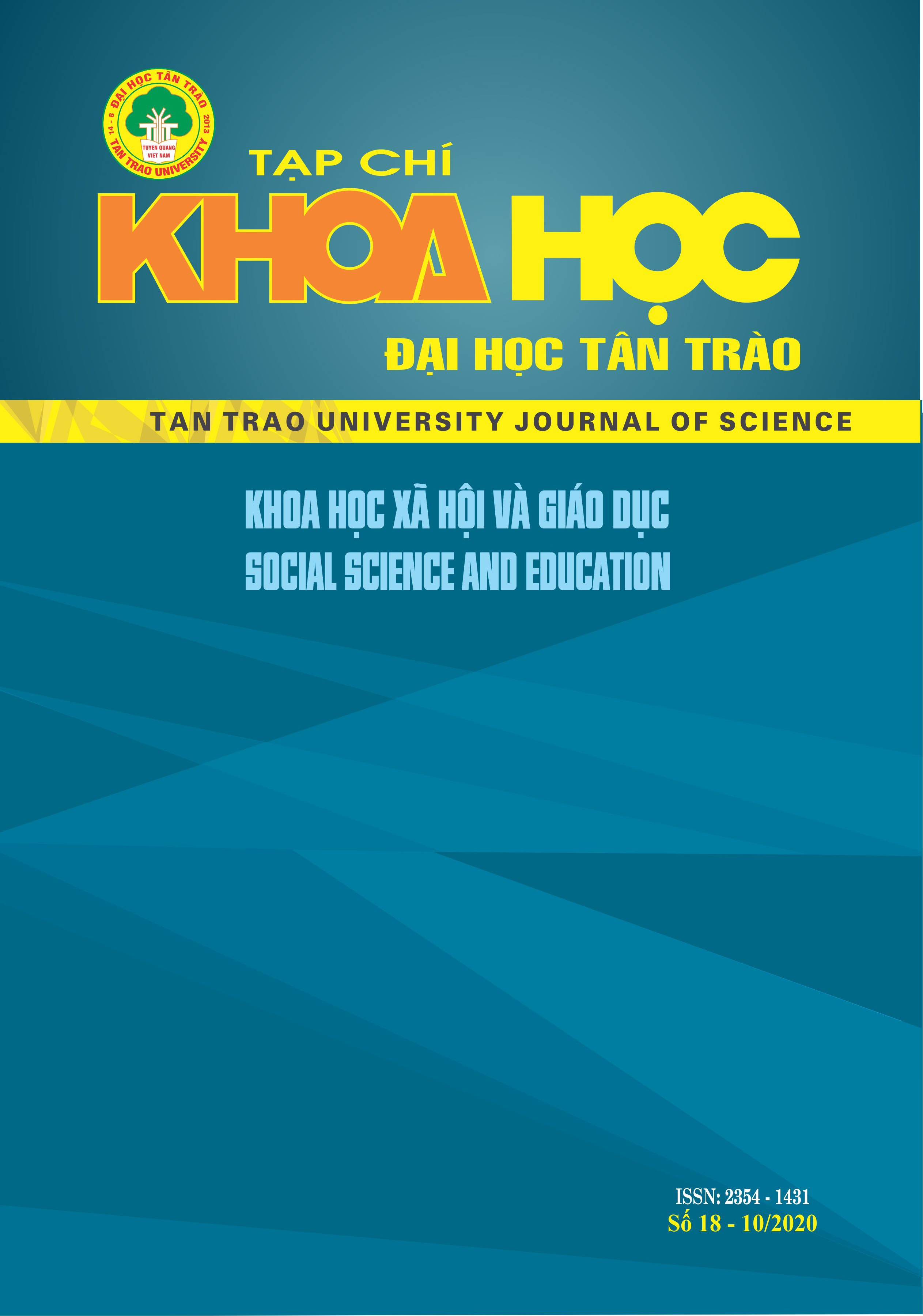CONFLICTING MANAGEMENT, IMPROVING PEACE AND DEVELOPING UNIVERSITY CULTURE
DOI:
https://doi.org/10.51453/2354-1431/2020/398Keywords:
cultural behavior, school culture, conflict management, development of university cultureAbstract
University behavioral culture is a part of the university culture. It is concerned with conflict management, easing and enhancing the harmony within the organization so it is imperative to approach these problems in a participatory style. This article helps to explain some of these problems.
Downloads
References
[1] Deal T. E. and Kennedy, A. A. (1982, 2000), Corporate Cultures: The Rites and Rituals of Corporate Life, Harmondsworth, Penguin Books, 1982; reissue Perseus Books 2000.
[2] Deal, T.E., & Peterson, K.D. (1994). The leadership paradox: Balancing logic and artistry in schools. San Francisco: Jossey-Bass.
[3] Deal, Terrence E. (1993), "The Culture of Schools." In Educational Leadership and School Culture edited by Marshall Sashkin and Herbert J. Walberg. Berkeley, California: McCutchan Publishing.
[4] Đặng Thành Hưng (2014), Tiếp cận quản lí giáo dục hiện đại, Tập 1 và Tập 2, Đại học sư phạm Hà Nội 2.
[5] Đặng Thành Hưng (2016), “Văn hóa tổ chức và văn hóa nhà trường trong quản lí giáo dục”, Tạp chí khoa học giáo dục, số 124 tháng 1/2016, tr. 10-12,15.
[6] Đặng Thành Hưng (2016), “Đặc điểm và nguyên tắc quản lí xung đột trong giáo dục”, Tạp chí Quản lí giáo dục, Vol.8, No 10, pp. 8-11.
[7] J. Smyth, P. McInerney, R. Hattarn, M. Lawson (1999), School Culture As the Key to School Reorm, Flinders Institute for Study of Teaching, Flinders University of South Australia.
[8] Kotter, J. P.; Heskett, James L. (1992), Corporate Culture and Performance. New York: The Free Press. ISBN 0-02-918467-3.
[9] Needle, David (2004). Business in Context: An Introduction to Business and Its Environment. ISBN 978-1861529923.
[10] Phillips, G. (1993). The school-classroom culture assessment. Vancouver, British Columbia: Eduserv, British Columbia School Trustees Publishing.
[11] Ravasi, D.; Schultz, M. (2006). "Responding to organizational identity threats: Exploring the role of organizational culture". Academy of Management Journal 49 (3): 433–458.
[12] Schein, Edgar (1992), Organizational Culture and Leadership: A Dynamic View. San Francisco, CA: Jossey-Bass.
[13] Stolp, Stephen, and Stuart C. Smith (2994), “School Culture and Climate: the Role of the Leader”. OSSC Bulletin. Eugene: Oregon School Study Council, January 1994
[14] Wagner, C. (2000). School culture analysis. Address presented at the annual meeting of the Manitoba Association of Resource Teacher (MART). Winnipeg, Manitoba.
Downloads
Published
How to Cite
Issue
Section
License

This work is licensed under a Creative Commons Attribution-ShareAlike 4.0 International License.
All articles published in SJTTU are licensed under a Creative Commons Attribution-ShareAlike 4.0 International (CC BY-SA) license. This means anyone is free to copy, transform, or redistribute articles for any lawful purpose in any medium, provided they give appropriate attribution to the original author(s) and SJTTU, link to the license, indicate if changes were made, and redistribute any derivative work under the same license.
Copyright on articles is retained by the respective author(s), without restrictions. A non-exclusive license is granted to SJTTU to publish the article and identify itself as its original publisher, along with the commercial right to include the article in a hardcopy issue for sale to libraries and individuals.
Although the conditions of the CC BY-SA license don't apply to authors (as the copyright holder of your article, you have no restrictions on your rights), by submitting to SJTTU, authors recognize the rights of readers, and must grant any third party the right to use their article to the extent provided by the license.


